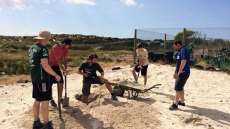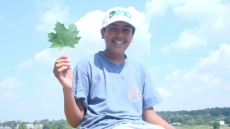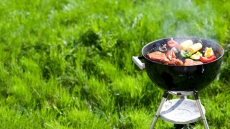The BC Shellfish and Seafood Festival, held in Comox Valley, was better and definitely bigger than the last. Visitors of the festival enjoyed 10 days of seafood tastings, informative aquaculture producer tours, signature dinner events and competitions, workshops from aquaculture industry leaders and more.
When you think of seafood or the workings of the industry, you picture boats going out to sea, casting their fishing nets, and capturing tons of fishes. This image is merely one of the many features and functions that the seafood industry comprises of. A short experience at the festival gave me a close and personal view of the industry and how advanced and productive it is in terms of new technology and methods. While tasting and sampling fresh seafood from Vancouver Island, I also got a glimpse of the entire ocean-to-plate process.
“Aquaculture is a big part of our economic diversification,” says Andy Adams, mayor of Campbell River, further adding, “We are also the centre for the BC Centre for Aquatic Health Sciences, so we are doing a lot of research and ocean environment sustainability.”

A walk around the Comox Valley Harbour Authority - Fisherman’s Wharf can give you a glimpse on the region’s commercial fishing industry. The wharf comprises of various vessels that represent a range of wild fisheries like salmon, tuna, shrimp and halibut among others. Though the fishermen sell their fish to buyers, you can also purchase some at the dock. “Shrimp is fished for 10 months in a year and closed mostly in April and May,” shares Ron Clark from Comox Harbor Marina, about shrimp fishing. “Fishermen know where exactly to fish, they have repeat places that they go to and try the same areas all the time,” says Clark, who adds that fisherman are always careful of killer whales and other aquatic animals that are eyeing the fish caught in the nets or boats.

Besides the advancement of technology and fishing products, the industry also includes fish farming, which is practised greatly in the Comox Valley. B.C.’s original fish farmers date back to only the mid-1970s and 1980s. As part of the festival, we went on a short tour of a salmon farm (associated with BC Salmon Farmers Association) out in the ocean. At the farm, salmon is reared in net pens, fed, vaccinated and monitored to ensure a healthy growth process to reach its ideal weight, and then shipped off to be sold. “We truly believe we are the salmon capital of the world for all salmon. We have all five species of trout salmon spotting in our Campbell River,” adds Mayor Adams.

Besides salmon farming, another element of BC aquaculture is hatcheries where marine life is grown in an artificial environment for commercial purposes. Manatee Holdings Ltd. helped pioneer the geoduck, sea cucumber and urchin dive fisheries in British Columbia, Canada. The company’s director, Eric Winston Gant, is considered to be one of the world’s foremost authorities on geoduck clam aquaculture. At his shellfish hatchery, built in 2000, we got the chance to see and touch sea cucumbers and geoduck while Gant explained the delicate procedure of growing them.

The trip also included a visit to Fanny Bay Oysters processing plant – a popular name in oyster farming business and the largest producer of shellfish in Canada. They are the growers, processors and exporters of farm-raised Pacific oysters and Manila clams. They produce their own larvae in the hatchery and complete the full cycle of sustainable farming. “The process of growing oysters takes two years,” reveals Fanny Bay Oysters general manager Brian Yip. When the oysters are ready, they are shucked manually at the plant. “The staff shucks 500-600 oysters an hour,” adds Yip.
The BC seafood industry has expanded greatly over the years. Through the use of technology, farm practises, environment and ocean safety measures, and other innovative methods, the industry is getting more diverse and attracting many buyers and sellers to the market.




